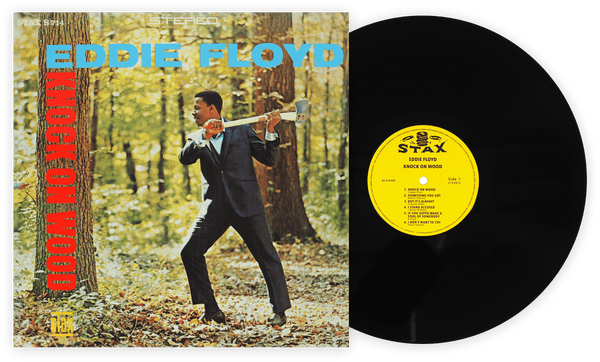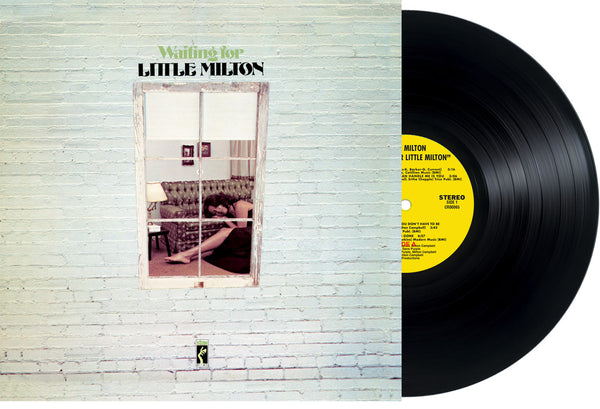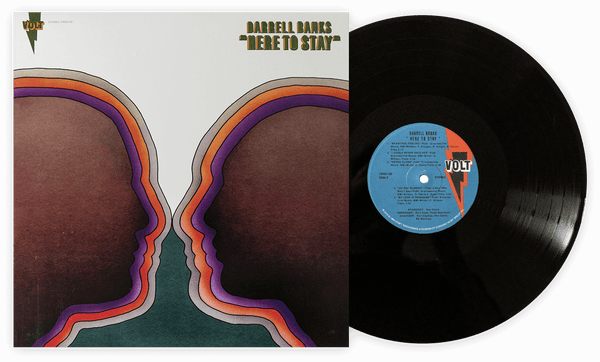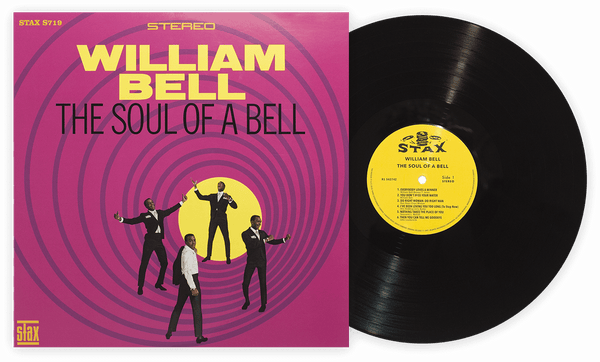To help people who bought VMP Anthology: The Story Of Stax Records dive deep into the catalogs of the artists featured in our box set, we’ve created primers for every artist featured.
Though he was born in Alabama, Eddie Floyd’s music career started even farther away from Memphis: In 1955, as a teenager, Floyd convinced his uncle to let him move with him to Detroit, at that point a city still booming with jobs and opportunity. Floyd took little time in starting a group in Detroit; he founded the Falcons with coworkers at a jewelry store shortly after arriving in the city. Sometimes called “The World’s First Soul Group,” the Falcons were notable because they were interracial at a time when that was a rarity, though that lasted only until the two white members joined the military when the Falcons’ 1956, Floyd-penned debut single didn’t gain any traction. Needing members, Floyd enlisted Mack Rice — who’d go on to write “Respect Yourself” for the Staple Singers — and Joe Stubbs, younger brother of one of the Four Tops, as lead singer. The group had a monster hit in 1959; “You’re So Fine” sold a million copies, and found the Detroit group playing on Dick Clark’s American Bandstand. When the group was working on follow-up material, Stubbs demanded that his name go in front of the group’s — they’d be Joe Stubbs and the Falcons — and Floyd and the other members responded by kicking him out. Stubbs’ replacement was someone whose life would be intertwined with Floyd’s forever: Wilson Pickett.
Even though he sang on some of their biggest hits, Pickett was never actually in any group press photographs. In fact, while their manager kept pushing for them to ask Pickett to be their lead singer, Floyd and the rest of the group kept angling to get a young singer who just moved to Detroit named Marvin Gaye to join the Falcons. Pickett’s contribution to the Falcons was mostly as a touring member, as the group had trouble convincing any label to release their singles after 1960, though their minor 1962 hit “I Found a Love” was co-written by Pickett. In 1963, the group functionally disbanded when Pickett went solo — and was subsequently signed to Atlantic — and when Floyd moved to Washington, D.C.
In D.C., Floyd became friends with original Stax star Carla Thomas when she was in grad school, and along with Al Bell — who’d go on to run Stax in the late ’60s and ’70s — Floyd wrote “Comfort Me,” the title track for Thomas’ sophomore LP. Soon after, Floyd was a fixture at Stax, writing “634-5789” for Wilson Pickett, who was in Memphis recording for Stax.
He’d end up as one of the most prolific solo artists on the Stax roster. His second album, Never Found A Girl is featured in our box, and here, we give you six more albums to dig into.
Knock On Wood (1967)
We’ll keep this one brief: We featured this one as our Classics Record of the Month in 2018, and you can read our liner notes here. One of the best-selling Stax LPs and for good reason: It’s all killer, no filler.
Rare Stamps (1969)
The biggest names in Stax all got singles comps under the franchise name Rare Stamps and, while most of them featured a lot of singles that were on LPs, Floyd’s is a must-own for a non-album single especially: “Big Bird.” Written in the immediate aftermath of Otis Redding’s plane crash when Floyd was getting ready to board a trans-Atlantic flight to Memphis, “Big Bird” is the closest to psych-rock Stax ever got, a phenomenal song that you can’t get on another Floyd LP. “This House” is also a rare gem worth getting this record to hear in vinyl form.
You’ve Got To Have Eddie (1969)
Floyd’s best mode was always as a crooner; his velvety vocals are like a warm blanket. This album is probably his best album in that smooth mode: he covers “It’s Not Unusual” here. But the special heat here is “I Sowed Love (And Reaped A Heartache)” that has Eddie trading the spotlight with what sounds like an entire marching band of horns.
California Girl (1970)
Floyd was the only songwriter in the Stax roster who regularly spent time out in L.A. hanging out with Booker T. Jones when he left the label, and it manifested in his music getting a pastel paint overhaul, as the chill vibes of California made Eddie into a big softie, who makes love songs like the title track here. He very nearly goes full slow jam mode here.
Down To Earth (1971)
Compared to California Girl, this album is almost hard rock. Floyd gets down and dirty on the cover, and down and dirty in gnarly grooves laid down by a Steve Cropper-led band. One of the most rocking soul albums you’ll hear in the Stax catalog.
Soul Street (1974)
Floyd’s last LP for Stax is notable for its title track, one of the single funkiest songs not by Isaac Hayes in the Stax catalog. But this whole album, made with the Con-Funk-Shun Rhythm Section, is liable to have your whole house booming. Eddie never got to really complete his funk makeover, but he got close here.
Andrew Winistorfer is Senior Director of Music and Editorial at Vinyl Me, Please, and a writer and editor of their books, 100 Albums You Need in Your Collection and The Best Record Stores in the United States. He’s written Listening Notes for more than 30 VMP releases, co-produced multiple VMP Anthologies, and executive produced the VMP Anthologies The Story of Vanguard, The Story of Willie Nelson, Miles Davis: The Electric Years and The Story of Waylon Jennings. He lives in Saint Paul, Minnesota.







